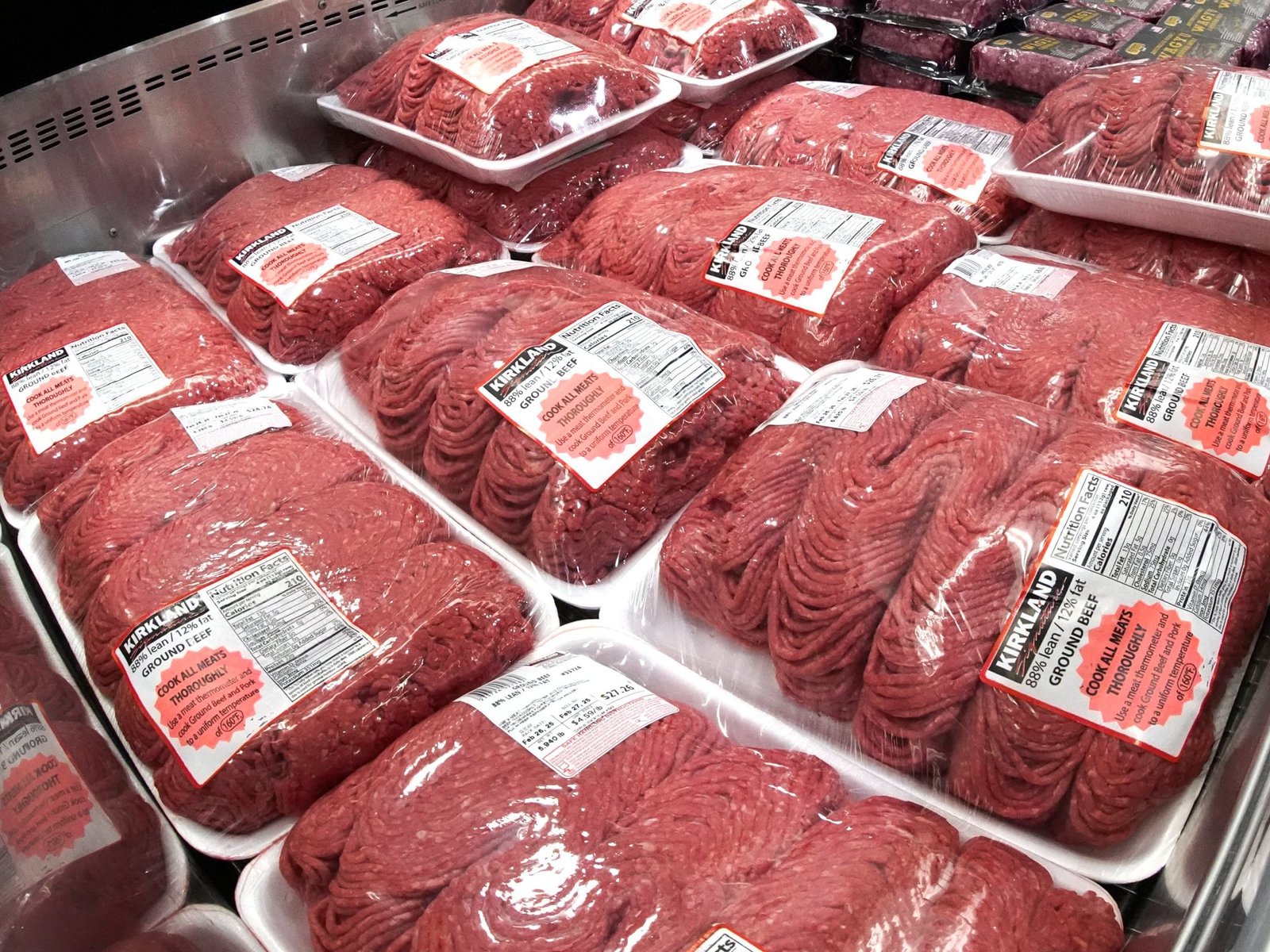In a significant move, President Donald Trump has announced a 50 percent tariff on Brazilian imports, which is poised to increase beef prices for consumers in the United States. This policy is scheduled to take effect on August 1, 2025, unless altered by the White House.
The US stands as the second-largest importer of Brazilian beef, following China, with Brazil contributing 21 percent of all US beef imports—a figure that has surged over the past year, largely due to domestic supply issues such as droughts and rising grain prices. This year, beef imports from Brazil have already doubled compared to the same timeframe in 2024, propelled by concerns over impending tariffs.
Experts predict that should the tariffs be enacted, they will burden importers of ground beef, which is essential for hamburgers. “Beef importers will face the choice of absorbing higher costs for Brazilian beef or sourcing it from more expensive alternatives, likely causing prices for ground beef and hamburger meat to rise. This situation arises as the US cattle herd has reached its lowest levels in decades, while consumer demand remains robust,” explained David Ortega, a food economist at Michigan State University, in an interview with Al Jazeera.
If implemented, the new tariff would elevate the effective rate on Brazilian beef to around 76 percent for the remainder of the year, according to livestock analysts at Reuters.
Domestic trade organizations like the National Cattlemen’s Beef Association (NCBA) have applauded the administration’s decision on tariffs. “The NCBA strongly endorses President Trump’s efforts to hold Brazil accountable with this tariff. For years, we have advocated for a full suspension of Brazilian beef imports due to concerns regarding cattle health and food safety. Reports of atypical BSE and prior incidents of foot and mouth disease raise significant alarms for our producers,” stated NCBA Executive Director of Government Affairs, Kent Bacus. “While a 50 percent tariff is a step forward, we urge for a halt on imports until a thorough safety audit can be conducted.”
During the 2024 election cycle, nearly 95 percent of political contributions from the NCBA’s PAC went to Republican candidates, reflecting the organization’s strong alignment with the party.
Rising Costs
The timing of these tariffs is critical as the US grapples with declining domestic beef production and an increasing dependence on imports. Compounding the issue, livestock imports from Mexico have halted due to health concerns surrounding a parasitic infection. In addition, beef imports from Brazil saw a decline in June as a result of a 10 percent tariff imposed earlier this year as part of ongoing trade negotiations.
While domestic beef producers may experience short-term advantages from reduced import competition, they are still contending with elevated input costs and environmental challenges that hinder rapid expansion. The US cattle herds are currently at their smallest in over 70 years, with projections indicating a further decrease of two percent by year-end.
Drought and other supply issues have led to a significant rise in imports—doubling in the initial five months of the year compared to the same period in 2024—but there are indications of a decline in imports recently due to the blanket tariffs.
Robert Perosa, president of Brazil’s Beef Exporters Association (ABIEC), expressed that the new tariffs could render exports to the US “economically unfeasible.” This situation is expected to escalate operational costs for countless restaurants nationwide.
“Significant tariff increases could complicate menu planning and increase food costs for restaurants as they search for alternative suppliers,” remarked Sean Kennedy, executive vice president of public affairs at the National Restaurant Association. “Our sector relies on a steady stream of imported goods that are not produced domestically, and we encourage the administration to foster fair trade agreements.”
Inquiries by Al Jazeera to major fast-food chains, including McDonald’s and Burger King, yielded no responses, nor did Brazilian giants JBS and Marfrig respond to requests for comment.
Market Reactions
Financial markets have reacted cautiously to Trump’s tariff announcements this week, with the Dow Jones Industrial Average declining by 0.6 percent and the S&P 500 dipping 0.33 percent. The Nasdaq Composite Index saw a slight decline of 0.2 percent.
Interestingly, JBS, which has a considerable beef production presence in the US, raised $200 million earlier this year for the expansion of two facilities stateside. Its stock experienced a modest increase of 0.4 percent, despite the potential ramifications of the tariffs on Brazilian exports. In contrast, Marfrig’s stock fell by 3.98 percent, coinciding with the postponement of a shareholder meeting linked to an unrelated acquisition.

